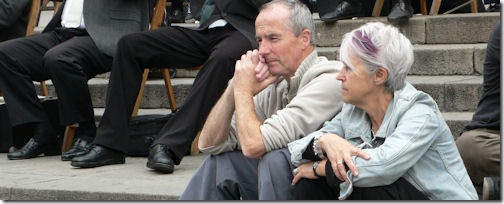 Where Does Paul Derive His Instruction about the topic of head coverings?
Where Does Paul Derive His Instruction about the topic of head coverings?
First, Adam and Eve. Paul states that woman was created for the man, and not man for the woman. Second, he references that the angels are witnesses. Third, natural order. Lastly, that all the churches of the time had wives that covered their heads and the husbands that did not. There is also a reference in here to Deut 21:13 talking about how a woman is dishonored if her head is shaven. Proverbs 12:4 talks about how the woman is the crowning glory of her husband.
What are the commands in this passage?
- The Divine Order of Christ, Husband, Wife.
- Every man that prays or prophesies with his head covered dishonors his head.
- Every woman that prays or prophesies with her head uncovered dishonors her head.
What is Being Illustrated Through Whether or Not Something Is On The Head?
Paul begins the passage with a discussion of the Divine Order—that God is first, He created Man and then from Man came Woman. This Created Order, or Divine Order, is to be displayed (according to this passage) as the presence or absence of something on one’s head.
Why Does Paul Care So Much If A Woman Covers Her Head?
In the Jewish culture, the men and women covered their head. The head covering showed submission and modesty. Why? Paul lays this out further in the passage when he talks about women’s hair being her glory. What’s strange to me is that this is Paul, the guy that fights for your rights to do whatever you want to the glory of God, and here he is telling us to do something that seems arbitrary.
Is the Command Cultural?
The typical response to this passage is that the Divine Order is still there, but that the command to cover or remain uncovered is not. Some say that we should find a current cultural representation that fits with the spirit of the passage. Since this is a question/answer section, I find it logical to believe that the question posed is “Should women continue to cover their heads?” which is the identical question that we have when we come to the passage. From the actual text, I find no argument being made that the heads were covered because “that’s what the culture does” but rather have the Apostle declaring that it is something that all the churches of the day did.
If I am Supposed to Cover, Do I Need To Do It Always?
Some say that this passage is directed at the church. Some say that it’s only for times that you’re praying or prophesying, and since you’re always praying (“Pray without ceasing”), that means you always have to cover. But if that’s the case, can men never wear a covering? This does not seem like it’s the correct interpretation.


